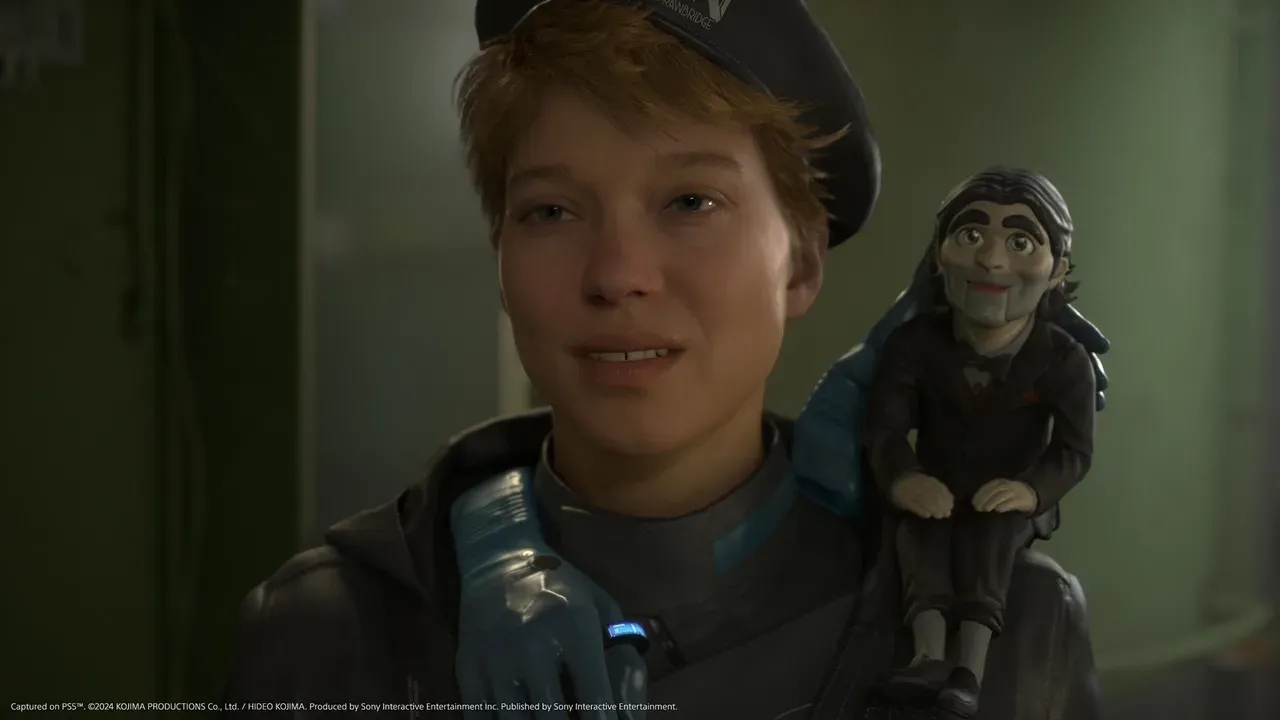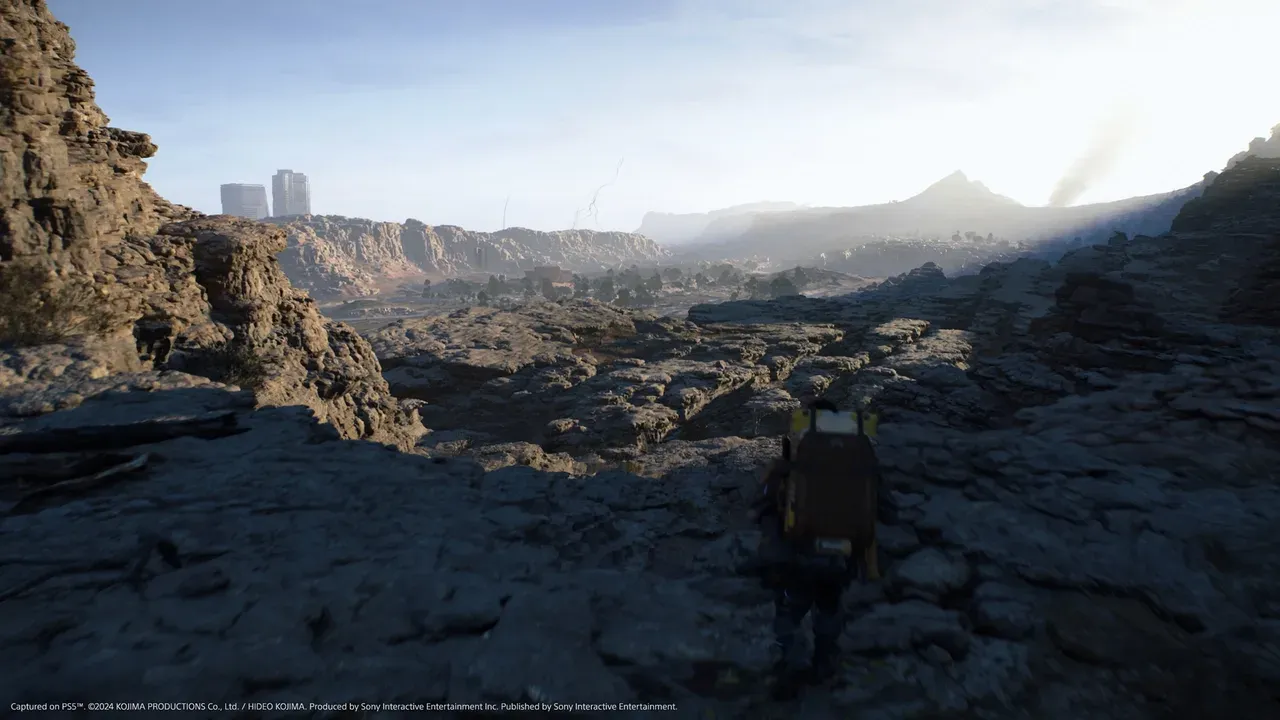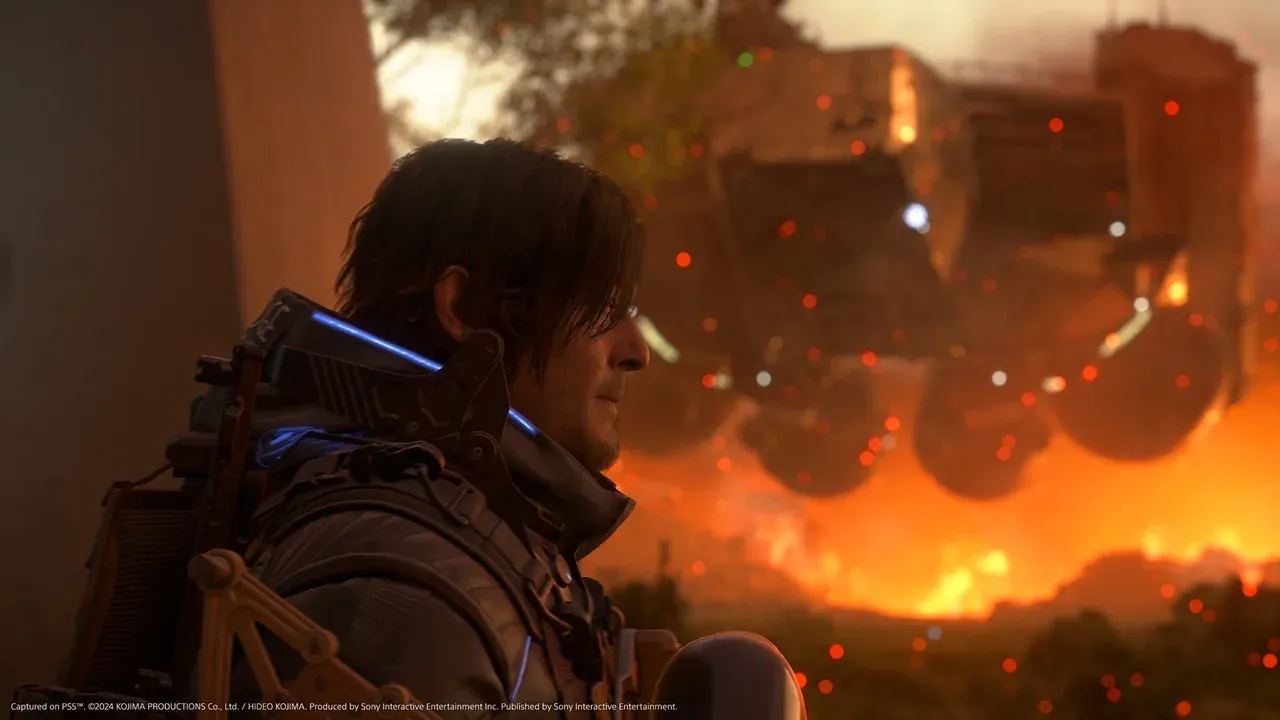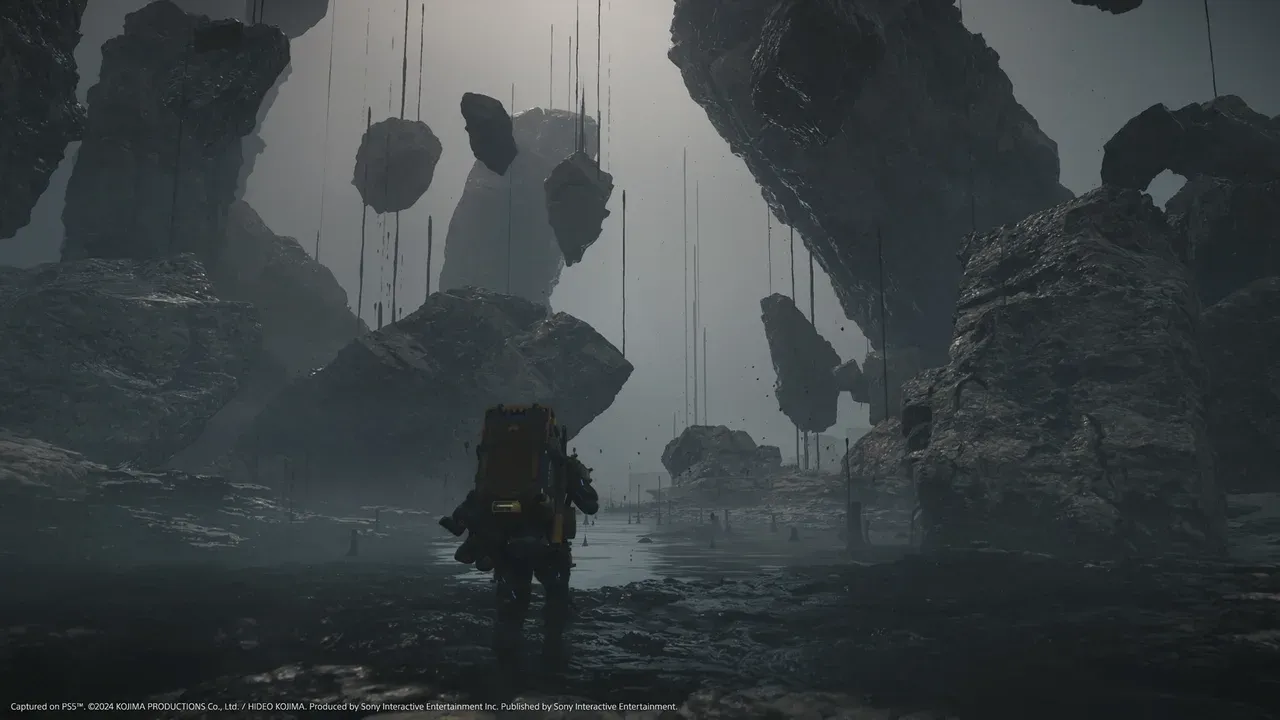About a year ago, I went to see Bruce Springsteen on his latest world tour. By the end of the four hour set, if you had told me this was a farewell show, I wouldn't have doubted it. Despite repeated assurances that The Boss will keep playing till the wheels come off, there was something final about that one magical performance. An acceptance of the end, in a way.
That same melancholy permeates through Death Stranding 2: On the Beach, Hideo Kojima's latest and most satisfying game to date. It feels like a goodbye, or, at the very least, the opening act to a final chapter.
At its heart, Death Stranding is a sombre meditation on loss, trauma, and the helplessness of letting go. As a game, it lulls us into a deeply satisfying cycle of delivery and connection as the world falls apart around us.
In a way, it's the most comprehensive magic trick Kojima has ever pulled. A meta-narrative of not just his works, but our collective history of sorrow.

Story & Gameplay
The story picks up a year later from the first Death Stranding. Having prevented the destruction of all humankind, Sam (Norman Reedus) has retired into the wilderness, away from the scheming and complexities of whatever remains of America.
One day, he receives a message from his old friend, Deadman (Guillermo Del Toro), with a wish for them to see each other. Time, after all, is a cruel mistress, and one day they will both have to go their respective beaches and say farewell for good. Sam asks Fragile (Léa Seydoux) to watch over Lou, his adoptive daughter, as he sets off to trek across Mexico one last time. His journey will eventually find him traversing the continent of Australia, where the Stranding has devastated the landscape with cataclysms and natural disasters. Leaving Sam and his friends to wonder if their mission to unite everyone does more harm than good.
This is just the initial setup, revealing only the first 15-30 minutes of gameplay, and it's as much as you should know going in. Even if I revealed more, it wouldn't make sense on its own, but it would also detract from the emotional impact of Kojima's prose. Death Stranding 2 is a game best experienced blind and with an open heart. It is a work of utmost sincerity, something I think Kojima has not accomplished before.
In fact, I would argue this is the first time Kojima has crafted a game and narrative that is entirely his. Which isn't to say his previous works haven't been original, but they've always felt like his versions of the films that stoked a fire in him. They're beholden to their structure and style in a way that speaking about them demands to acknowledge which bits are lifted from the movies wholesale.
In Death Stranding 2, Kojima still proudly weaves his love for pop culture, literature, and obscure gags into a cohesive whole. Only this time, it's one that feels unique and incomparable to anything else. In a way, it has spiritual kinship to Stephen King's The Dark Tower series by being so singularly a game about Kojima himself. The more you know about his work, interests, and quirks, the more you'll get out of it.
But this isn't just a navel gazing series of references. For the first time, Kojima has found the balance between his desire to direct a film and the work of directing a gameplay experience that doesn't neglect the player. There are still incredible – and often perplexing – cut scenes that will blow any competition out of the water. But it's also the first Kojima game in decades that lets the player actually play from almost the very first few minutes, and it never takes away that control for the next glorious 50+ hours.

The gameplay loop in Death Stranding 2 is mostly the same as in the first game, though with quality of life improvements peppered throughout. While some of the frustrations remain unchanged — Sam is as clumsy and easily toppled as ever — this is a more refined and satisfying experience than before.
The majority of the experience is still in the work of connecting settlements, called Knots, together, and making deliveries big and small to their occupants. Each delivery comes with its own parameters, including how fast or in what condition the package has to arrive.
The more deliveries Sam makes, the better his connection with each Knot becomes. In turn, they reward him with more raw materials to rebuild roads and monorails, and with new blueprints to make his journey easier. In theory, you can complete the entire game without doing anything beyond the story missions, but doing so will cut out a vital aspect of the gameplay experience.
It helps that the loop itself is immensely satisfying. Every representative of each settlement is a character you want to learn more about, and the world is just small enough that every action has immediate and visible effects. Death Stranding 2 lives in a semi-connected online state, where other porters can see and use the gear and roads you’ve left behind. In turn, their likes boost your progress, and the game encourages this silent act of positivity. It creates an experiment of the social contract. A dynamic representation of how important it is to uphold your part of the deal and leave this world a better place than you found it.
Is it a perfect game? Absolutely not. Like the first one, Death Stranding 2 is at its worst in combat, and sadly puts an even larger emphasis on shootouts this time around. Entire sections of the narrative require extensive action sequences, especially a few tedious boss battles, and none of them feel right. They're always spectacular when it comes to presentation, it's just the gameplay that's fiddly and unsatisfying.
Likewise, as the map fills out, some of the sub-orders prove to be exceptionally long and arduous. Yes, they're entirely optional. That still doesn't make them fun.
Luckily, much of the fun comes from filling out said map with alternative paths, roads, and traversal mechanics for others to find. During my two weeks with the game, it was already a joy to return to Australia and find hundreds had used my flimsy ladder bridge or zip line.
At one point, I noticed I had spent at least ten hours just grinding away, putting in new roads and monorails into poorly accessible areas, simply because I knew that some of the porters I had friended – but never seen or interacted with – would need them one day.
Days later, I couldn't help but feel moved when I saw a thumbs up emoji pop up in the HUD. It was signed by one of my distant friends who I only knew by call sign.
It's these mechanics that tie into the narrative of connection that make Death Stranding so special. For much of the story, Kojima asks us to consider the price of reaching out, and how much we have to put into relationships. Are they worth it? What good is a hand to shake when the world itself is on fire?
Death Stranding 2 offers a definitive answer to these questions in a way that's tied to the gameplay mechanics and story that Kojima has never accomplished before.

Accessibility & Technical Presentation
Death Stranding 2 is a gorgeous game that, even in its review copy form, was playable from beginning to end without a single hiccup or notable issue.
In terms of accessibility, Kojima Productions continues to take great strides in doing their own thing in making their products accessible and fun without detracting from immersion.
Beyond features for audiovisual and motor function impairments, Death Stranding 2 features a fantastic option to skip boss fights entirely. It’s a fantastic addition that alone makes the game easier to recommend for a wider audience. No achievements are locked behind difficulty modifiers, and every aspect of the experience is available on your pace and skill.
As a technical achievement, Death Stranding 2 is a towering feat of artistry, blending together the cinematic language Kojima has spent decades learning with a unique gameplay format that breaks all boundaries between the two. The moves between cinematic and game are so seamless, they're almost entirely illusive. In a happy surprise, Kojima even offers the player to learn as much or as little exposition as they choose. It's a massive step forward for the verbose maestro, who before would have forced us to endure 90+ minutes of dialog for 15 minutes of gameplay.
The soundtrack, now composed by Woodkid and Ludvig Forsell, is likewise the best Kojima's production company has put together. There are moments so intensely beautiful, where gameplay and soundtrack work together, that I had to pause and take a long breather just to continue.

Who's It For?
Death Stranding 2 is the encapsulation of Hideo Kojima's ambition to marry films and games into one seamless experience.
For the first time, it's not him emulating the cinema he adores. Instead, it's Kojima directing a vast, emotionally charged epic that others will imitate in years to come.
It is a masterpiece of storytelling and game design. A peerless exploration of grief, found family, and all that we leave behind.
There are complaints, sure, and Kojima still struggles with boss battles, but they pale in comparison to the achievements, which are numerous.
For years, Kojima has spoke of how his influences drive him to do better. How he doesn't want to be the next anyone else, and he doesn't want others to become him. Death Stranding 2 is his vision of gaming, literature, and cinema at its purest. It is grandiose, overblown, melodramatic, wild, and totally sincere.
There is nothing else like it, and we should celebrate the fact that it even exists. Death Stranding 2 is a work of profound insanity. A multimedia masterwork to be studied and admired for decades to come.









